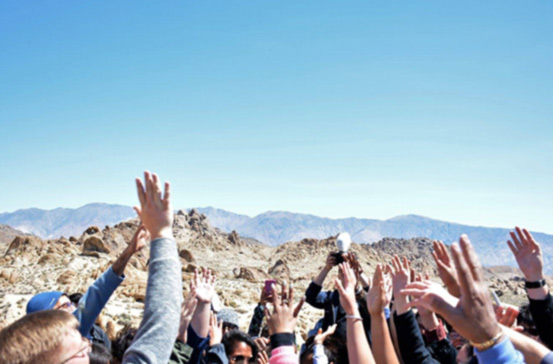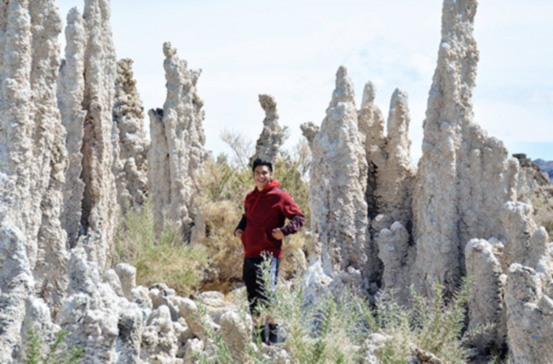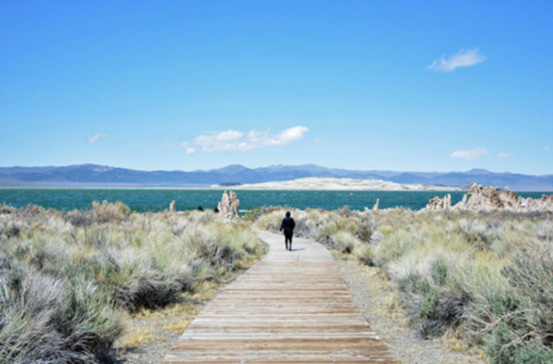Geography
Geography
We help our diverse student body to understand the natural and cultural environments of the region and around the world, to be critical consumers of environmental advocacy and to appreciate the beauty and wonder of the planet and its diversity.
Our flexible curriculum will assist you in reaching your academic and professional goals, including the attainment of academic degrees at both the community college level and the baccalaureate level through transfer credit.
We take an integrated, system-based approach to the study of natural processes, sometimes called earth system science. This stress upon the interactions of various components of our system is especially valuable in today’s rapidly changing environment.
Learning outcomes from our courses include:
- Patterns on Earth. Analyze factors related to a site’s location to explain climate, oceanic and atmospheric circulation, volcanism and tectonic features of the area.
- Environmental Change. Analyze and discuss causes and effects of major contemporary environmental changes involving climate, atmospheric composition, and biota.
- Data Representation. Analyze and discuss data presented in standard charts, maps, and diagrams.
- Scientific Evidence. Describe and analyze major debates in the history of evolving human knowledge of Earth systems. Think critically about the nature of evidence in science and inferences that can be drawn from it.
- Humans as geographical agents. Understand the relevance of human culture and institutions in shaping the landscape.
- Spatial aspects of culture. Discuss the history and diffusion modes of such cultural features as religion, language, and material culture.
- Geographic view of the world. Through the methods of cultural geography, analyze geographic factors involved in current events and cultural trends.
- Civic Responsibility. Critique public policy and defend political views based on an understanding of geographic factors.
Career opportunities in geography are both intriguing, rewarding and wide-ranging. Majoring in geography at a higher level institution will prepare you for career opportunities such as environmental conservation, surveying, development, land and water management, urban planning and more!
Go to https://www.aag.org/cs/what_geographers_do to learn more about what geographers do and explore current salary and growth trends.
With geography you can make a difference in the world!
Answer these 10 questions to see if you are a geographer at heart!
1. Are you curious about places in the world?
If so, geography channels this interest into the study of the makeup of places and what makes them tick.
2. Do you like to look at maps?
The geographer’s first inclination is to put information on a map in order to see how it looks spatially.
3. Do you prefer the window seat on airplanes?
Geography explains the constantly changing patterns of human activity and natural phenomena on the landscape.
4. Are you interested in foreign areas?
Many geographers specialize in a particular part of the world such as Latin America, Europe, Asia or Africa.
5. Do you like to work outside?
Many geographers obtain field data in environments that range from wilderness areas to cities.
6. Are you a problem solver?
Geographers are naturally curious about how the world is arranged. They ask questions about WHERE things are located and WHY they are found there.
7. Are you good at seeing connections among seemingly unrelated processes?
Geographers learn to integrate ideas about human behavior, social institutions, and the natural environment.
8. Can you adapt to rapid technological change?
Geography has been transformed by monumental changes in computer and satellite technology. Geographic Information Systems (GIS) have revolutionized the way geographers collect, store, analyze, and present spatial information.
9. Do you try to see the big picture?
Something about geographers’ minds causes them to look for the way places fit together, interact with one another, and are influenced by larger, more global forces. Geographers think big!
10. Are you interested in connections between humans and the environment?
Geographers see the world as the human habitat, one that we have transformed and that has transformed us.
© The Association of American Geographers



